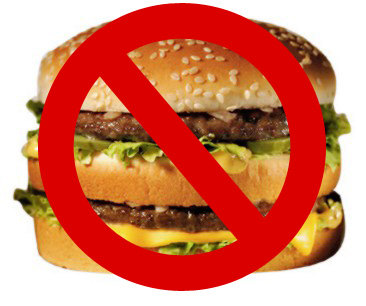Depression and the Food You Eat – Can They Be Connected?
Can depression be caused or affected by the food we eat? Depression affects 121 million people worldwide. Little focus is placed upon the food we eat as a possible factor in this debilitating emotional condition. Our food choices can certainly affect our mood but it is not quite that simple. Our moods also affect and influence the types of foods we crave, reach for and eventually eat.
When life feels wonderful, even if we choose to eat what is considered junk food, we may more easily be able to limit the portion and combine that food with other more nutritious foods. When we have just completed a strenuous workout and our body is feeling great, we are less likely to choose a candy bar or a piece of cake. When we are busy at work and feeling true satisfaction from a job well done that is also appreciated by others, we are more likely to resist the fried foods and butter and heavy sauces and more likely to select high protein and low carbohydrate foods because we feel good and are not using food to suppress our feelings.
Most of us do use food, at least sometimes, as a source of emotional comfort when something in our life does not feel good. We can all remember a time when we felt disappointed, discouraged, angry or upset in some way and we garbled down some unhealthy food or drink to help us feel better. Food CAN be a real aphrodisiac. It can also soothe our frazzled emotions.
If you are depressed, you are more likely to crave such carbohydrate rich foods as mashed potatoes, pizza, cake, ice cream and candy bars. When you are depressed, the levels of your feel good hormones, serotonins, will drop and if you are stressed, your cortisol levels will increase. High carbohydrate and creamy, soothing foods may help to comfort you and temporarily balance your out of sync hormones.
However, a few hours later, the insulin in your body will increase, your blood sugar level will drop and then your cortisol level will increase to insure that you have adequate blood sugar reaching your brain. Now your mood will drop into depression and the cycle begins again.
A recent study published in the Public Health and Nutrition Journal, indicates that those who consume fast food, compared to those who rarely or never eat fast food and commercial baked goods, are 51% more likely to be depressed. That is an astounding statistic. And it seems that the dose matters, i.e., those who eat more fast food, hamburgers, hot dogs, and commercial baked foods, are more prone to becoming depressed. To add to their nutritional deficits, this group is also more likely to be less active, have poor dietary habits, eat less fruit, nuts fish, vegetables, healthy oils, smoke cigarettes, and work more than 45 hours per week.
We now know that the food we eat definitely has an effect upon our emotions, that our emotions influence our cravings and food choices, and we even know which foods will help to improve our emotional well being. So, what stops all of us from choosing the best foods for our health and emotional well being?
The two factors that stand our for me are: habitual sense memories and finances. Our brains retain memories in the form of visual images, taste sensations, textures and smells. Add to this the lower cost of fast food and the immediate gratification offered and it is not surprising that we cannot easily switch from fast food and commercial baked products to highly nutritious food.
The solution is not mere education but a total revamping of our sensual awareness and belief systems. We CAN acquire a taste for healthy food and a distrust of fast foods but it requires education about the true effects of various food, bodily experience – paying attention to how we feel during and after eating different foods – and budgeting our money carefully to include healthy foods that may be a bit more pricey.
Food is the fuel for our life. Why do so many of us treat our automobiles and pets much better than we treat our own body? Depression does not have to influence our eating habits. Our eating habits can and do determine our health and well being. Isn’t it time we begin to pay attention to our body and fill it with nourishing food that enhances our mood, prevents illness and sustains our health for years to come.






0 Comments
You can be the first one to leave a comment.